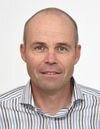What's New in Single-use, Continuous and Flexible Bioprocessing Industry case studies
At Repligen bioprocessing seminars, thought leaders and professionals from around the world meet and review exciting new drivers of bioprocessing efficiency, learn from adopters of transformative technologies, evaluate risk landscapes and collaborate to help set the standards of modern bioproduction.
Agenda
Registration and Coffee
Welcome and Overview
Advances in Fed-Batch Process Intensification: High Productivity Harvest using XCell™ ATF
John Bonham-Carter, Repligen
摘要
This talk will focus on answering 3 main questions in novel continuous upstream bioprocessing: (1) How can I gain from process intensification with the least effort?, (2) Should I retrofit my facility to become continuous or not? and (3) Is it possible to introduce intensification changes in late clinical or post commercial phases?

演讲人简历
John Bonham-Carter is the Director of Upstream Sales at Repligen. John has been a serial entrepreneur with experience in multiple countries in industries from newspapers to biotechnology. Within bioprocessing, he has worked with many different upstream technologies and, most recently, has propelled the XCell™ ATF System to become the industry leader in continuous culture equipment supply. John is a regular international speaker on bioprocessing, SME entrepreneurship and business coaching. He is the editor of two eBooks: “Continuous Bioprocessing: Current Practice & Future Potential” and "Continuous Bioprocessing: Industry Best Practices". John holds a Chemistry Degrees from the University of Bristol.
Case Study: Manufacturing of Antibody Drug Conjugates using Single-use Equipment
Fabian Studer, Lonza
摘要
The industry embraced single-use (SU) technology early on after first off the shelf solutions were brought to the market. Initially focused on cell cultures and cell culture products, the use of SU production solutions expanded over the last decade into other selected technology areas. The bioconjugates custom manufacturing offering of Lonza has about a 10 years history. While glass and stainless steel based manufacturing equipment dominated in the beginning, the face of bioconjugates manufacture changed in the meantime quite dramatically. Only 7 years after launch of the new market offering, we achieved first successful end-to-end production out of SU equipment. Handling of bioconjugates and especially the toxin payload poses a major challenge. The concept of product (patient) safety, a focus in biopharmaceuticals production, is to be amended by the containment and safe working environment aspect. Advantages, caveats and remaining challenges will be discussed.

演讲人简历
Fabian Studer is the Team Leader for Antibody Drug Conjugate (ADC) Production at Lonza Visp and has been in this role since 2013. Fabian brings more than 20 years of experience in the pharmaceutical and biotech industry, including several years of experience in single use technology. Since 1997, he has worked for Lonza in different production units, such as microbial fermentation including USP and DSP, Tides and API production. He was part of the team who introduced the single use equipment for the ADC production. Fabian holds a Degree in Biotechnology and Graduate from the zhaw Wädenswil, Switzerland.
Scalability of OPUS® Pre-packed Disposable Columns from 1 mL Laboratory to 57 L Production Scale: Prediction and Experimental Verification
Tim Schroeder, Director of Product Management, Repligen
摘要
Pre-packed chromatography columns have been commonly adapted in industry during the recent years, however data showing scalability throughout various column sizes applied in early stage process development up to commercial manufacturing has been not available so far. This presentation confirms the scalability of column performance throughout Repligen’s OPUS® Pre-packed column covering a range of 0.5 to 60 cm inner diameter. Scalability has been demonstrated for various resin types and functionalities and has been proven for both column packing performance and protein separation under isocratic conditions. Experimental data on OPUS® packing performance has been compared to traditional self-packed columns and found at least equal if not better. Furthermore a statistical data analysis using advanced software tools has been performed for more than 30,000 pre-packed columns supplied into global industry over a time span of 10 years.

演讲人简历
Tim Schroeder is the Director of Product Management at Repligen responsible for the OPUS® portfolio of Pre-packed chromatography columns for process development (formerly Atoll pre-packed columns). Before Repligen acquired Atoll GmbH in 2016, Tim was Head of Production at Atoll GmbH and was involved in the development and production of MediaScout® chromatography columns and the commercial launch of RoboColumn®. He graduated with a Degree in Dipl.-Ing. from the University of Applied Sciences Aachen, majoring in Biotechnology. His diploma thesis at the Research Center in Jülich, Germany was on the development of RoboColumn® and system integration, for which he received a US patent.
Lunch and Networking
Development Strategy for Mammalian Cell Perfusion Cultures at Lab Scale
Moritz Wolf, ETH Zurich
摘要
The rising relevance of integrated continuous manufacturing for the production of therapeutic proteins has attracted industry’s interest in mammalian cell perfusion cultures as general production platform for therapeutics. It is generally understood that the development of these processes should be done at the liter scale with further scale-up at commercial scale. However, the large number of cultivations needed in general for the development of a perfusion process requires a mL-scale reactor system that allows mimicking the continuous operation including cell bleeding and cell-free harvesting to reduce associated costs and medium consumption.

演讲人简历
Dr. Moritz Wolf is a Research Scientist in Professor Morbidelli’s Group at ETH Zurich. He is working on the design, development and optimization strategies for mammalian cell perfusion cultures as part of an end-to-end integrated continuous biomanufacturing platform. Moritz performed his Master Thesis in the metabolic engineering laboratory of Professor Greg Stephanopoulos at MIT. He holds both a Bachelor (2013), Master (2015) and PhD (2018) degrees from ETH Zurich.
Application of OPUS® RoboColumns® in Process Development and Process Characterization
Cornelia Walther, Boehringer-Ingelheim
摘要
On the basis of case studies, we will present the application of RoboColumns® in different phases of process development for non-platform molecules expressed in microbial hosts.

演讲人简历
Dr. Cornelia Walther is currently Downstream Development Scientist at Boehringer Ingelheim (BI) in Austria. She is responsible for development of recovery and purification processes as well as for high-throughput and automation activities in downstream development. Prior to BI, Cornelia was a scientist at ACIB GmBH where she worked on the dissolution and refolding of inclusion bodies and scale up and inline monitoring of renaturation processes Analytics (e.g., HPLC, SDS-PAGE). She holds a PhD in Biotechnology from University of Natural Resources and Life Sciences (Vienna, Austria) and a Diploma in Biotechnology from the Technische Universität (Berlin, Germany).
Break
High Density Cryopreservation for Upstream Process Intensification Using Frozen Seed Train Intermediates
Christian Schultheiss, Merck
摘要
For reaching sufficient absolute cell numbers for production bioreactor inoculation, several expansion steps need to be performed starting from one initial vial. High cell density cryopreservation (HCDC) is a method of freezing cells in bags instead of vials, at higher cell densities to shorten the expansion time. This application work provides tools and results demonstrating that this combination of technology allows to increase flexibility in manufacturing at constantly high bioreactor productivity and represents an ideal application for upstream process intensification and continuous bioprocessing.

演讲人简历
Christian Schultheiss is Research Scientist working in the Perfusion Systems department at Merck focusing on Cell Culture Media Development. He is experienced in Perfusion bioreactor applications for developing new media formulation and technical innovations for Perfusion. Within his 9 years at Merck, he also gained experiences in Downstream applications for early drug development. Christian holds a Bachelor degree in Process engineering (2014) and a Master degree in Bioanalysis (2017) from the University of Applied Science Fresenius.
Automated High Throughput Process Development Using Tecan Liquid Handling System and OPUS® RoboColumns®
Jana Langhoff, Tecan
摘要
Time to market is crucial in process development, and many companies developing and manufacturing therapeutic agents have invested in automated protein purification and high throughput bioprocessing. The miniaturization and parallelization capabilities of Tecan’s liquid handling platforms ensure an excellent understanding of bioprocesses for robust scale-up into manufacturing, enabling cost-effective development.

演讲人简历
Jana Langhoff is an Application Specialist for cell biology and protein sciences at Tecan. She has been part of Tecan since 2015 where her main focus lay in developing and supporting automated high throughput bioprocessing and protein purification applications with OPUS® RoboColumns® from Repligen. Prior to joining Tecan, Jana was a Development Engineer for Roche Diagnostics. She holds a Master’s of Science in Molecular and Cell Biology from Freie Universität Berlin.
Wrap-up
Cocktails and Networking
Discover More Seminars/Technical Roadshows